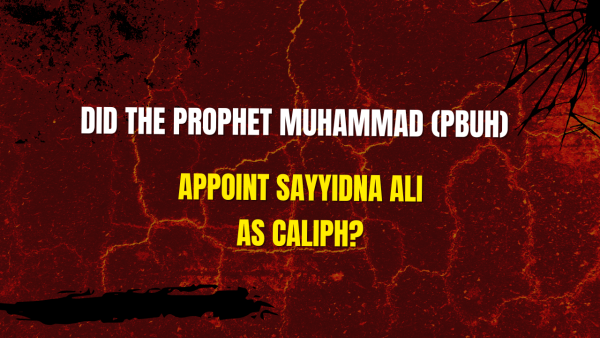The phrase “Islam revives after every Karbala” presents a specific concept, and I believe this statement often becomes a reason for people to adopt extreme views regarding the incident of Karbala. On one side, some view it merely as a political struggle, and on the other, those who elevate it to an absolute battle between disbelief and faith.
In our understanding, all individuals involved in the martyrdom of Sayyiduna Hussain (may Allah be pleased with him) are among the worst criminals in this universe. The incident of Karbala has long been subject to both exaggeration and negligence. Some people obliterate it from its historical reality, while others try to analyze it strictly through facts.
So the question arises: Was the incident of Karbala truly a battle between truth and falsehood?
Sayyiduna Hussain (may Allah be pleased with him), the beloved grandson of the Prophet Muhammad ﷺ and the apple of his eye, was martyred in one of the most painful tragedies to befall this Ummah. As mentioned earlier, people have adopted extremes when discussing this incident. Some deny its religious or moral significance entirely, viewing it as a mere political or dynastic battle for authority. According to them, it was just a conflict for power and kingship—nothing more.
On the other hand, some people view it as a clear war between truth and falsehood, belief and disbelief. The concept that “Islam revives after every Karbala” has been presented by them as an absolute truth.
I believe both are extreme positions. Between them lies a balanced and moderate understanding.
The criterion of Truth and Falsehood After the Prophet ﷺ
We all agree upon one principle: the criterion for truth and falsehood after the passing of the Prophet ﷺ is not based on the statements or personalities of any individual—no matter how noble. Not even the words or actions of great companions or leading Imams can be set as absolute standards. The only true criterion for truth and falsehood is the speech and actions of the Prophet ﷺ and the revelation sent down by Allah.
As for the religious standing of the incident of Karbala, it is well established. The Prophet ﷺ had foretold the martyrdom of Sayyiduna Hussain (may Allah be pleased with him). Some narrations even mention that the Prophet ﷺ was shown the place where Hussain would be martyred. He ﷺ also declared that Hussain and Hasan are the leaders of the youth of Paradise. These merits of Sayyiduna Hussain are firmly established.
The Historical Context of the Incident
As far as the details of the incident are concerned, we understand that the time during which this happened was a period of great turmoil (fitnah). Sayyiduna Hussain (may Allah be pleased with him) had a caravan of about 70–72 individuals who accompanied him. Without diving into too many historical details, we should understand that initially, his relationship with Sayyiduna Mu’awiyah (may Allah be pleased with him) was respectful. The conflict began after the appointment of Yazid bin Mu’awiyah to the caliphate.
When Sayyiduna Hussain received letters from the people of Kufa expressing their willingness to support him and pledge allegiance, he decided to travel there. He hoped to establish a righteous Islamic leadership. Numerous letters had reached him from Kufa, so he sent his cousin, Muslim bin Aqeel, to verify the situation. Initially, Muslim bin Aqeel confirmed the support from Kufa, but later he was martyred.
Sayyiduna Hussain received the news of his martyrdom during his journey. His response to this development is very telling and insightful. The details of this response are documented in both Sunni and Shia sources—such as “Nasikh al-Tawarikh” and the Shia historical source “Akhbar al-Tiwal.”
These sources affirm that upon learning of Muslim bin Aqeel’s death, Sayyiduna Hussain intended to return. This intent is stated explicitly. However, Muslim bin Aqeel’s brothers objected. They said, “We will not go back. Our brother was martyred unjustly, and we must take revenge.” Seeing their resolve, Hussain changed his plan and agreed to accompany them, expressing sentiments like:
“If you are going, then how can I stay behind? We will not part from you, and life without you holds no meaning.”
Negotiation Proposals by Hussain (RA)
The same sources record that when they confronted the forces of Ubaydullah bin Ziyad, the governor of Kufa, and the clash became imminent, Sayyiduna Hussain presented three options to avoid bloodshed:
Allow him to return to where he came from.
Permit him to go to the Muslim borders to participate in jihad and be martyred there.
Allow him to meet Yazid bin Mu’awiyah and resolve the matter directly.
These proposals are found in both Sunni and Shia sources.
Now consider this: if Hussain (may Allah be pleased with him) truly believed that Yazid was a disbeliever and that this was a war between belief and disbelief, how could he offer to reconcile or negotiate with a disbeliever? Even if he stood alone, he would never have offered compromise to falsehood. These statements are recorded with authentic chains of narration.
This proves that Sayyiduna Hussain originally intended to correct the deteriorating religious and political conditions. But when he saw betrayal from those he trusted—the people of Kufa—he adjusted his course. These very people who wrote him letters later turned against him and are, in reality, his true murderers. This fact is acknowledged even in Shia sources.
Warnings and Advice Before the Journey
Before departing, several members of the Prophet’s family and senior companions tried to stop Hussain. Abdullah bin Abbas, and Abdullah bin Ja’far—his cousin and the husband of his sister Zaynab—advised him not to go. Abdullah bin Ja’far even divorced Zaynab so she could accompany her brother Hussain while keeping their son to himself. This shows the seriousness of the situation. Not all Ahl al-Bayt traveled with Hussain, and many companions voiced their concerns, knowing well the state of the people of Kufa.
Our Belief Regarding Karbala
In conclusion, what should we, as Muslims, believe about the tragedy of Karbala?
●Sayyiduna Hussain (may Allah be pleased with him) and those with him were martyred unjustly.
●He had withdrawn from his earlier demands (of leadership or allegiance).
●He had shown a willingness to reconcile but was betrayed and murdered.
●The people of Kufa were the true agents behind his martyrdom.
And we believe that whoever—all those individuals who were involved in the martyrdom of Sayyiduna Hussain (may Allah be pleased with him)—are among the worst killers in this universe. And there is justification for invoking Allah’s curse (la’nah) upon them. Scholars have cursed them, and we also believe that those killers of Hussain (may Allah be pleased with him) are worthy of that curse, and they are among the worst of murderers.
As is mentioned in historical reports, Allah gave them punishment in this world, and we believe that Allah has also prepared punishment for them in the Hereafter, because they martyred Sayyiduna Hussain (may Allah be pleased with him)—who was the beloved grandson of the Prophet (peace and blessings be upon him)—and stained their swords with his blood, and this was an unjust martyrdom.
As for giving this event a color of exaggeration, and gathering such incidents and narrations for it that have no standing, then this is wrong. There are such narrators—like Abu Mikhnaf, a narrator—who have mentioned such things about the incident of Hussain that are not authentic.
Lastly, if anyone wants to read something reliable about this incident, then Hafiz Ibn Hajar (may Allah have mercy on him) has mentioned this incident in Tahdhib al-Tahdhib. Abdullah bin Ja’far, who is the son of Ja’far bin Ali bin Hussain, that is, Ja’far, who is the son of Sayyiduna Ali bin Hussain, and Zayn al-‘Abidin’s son—Ja’far narrated this full incident.
Someone asked him, “Please narrate the incident for me in such a way as though I were present in Karbala.” Even though Ja’far himself was not present, the incident that his father had narrated to him, he narrated that. And he narrated the same incident that I have just presented before you.
In Tahdhib al-Tahdhib, this incident is recorded with authentic chains of narration.
So this is the understanding we should hold.













Leave a Reply